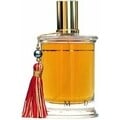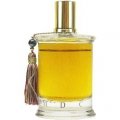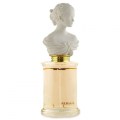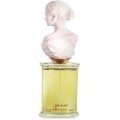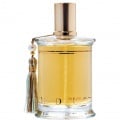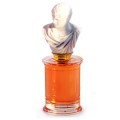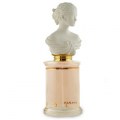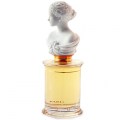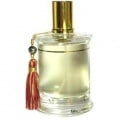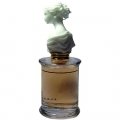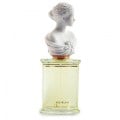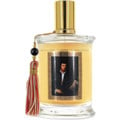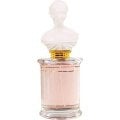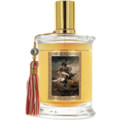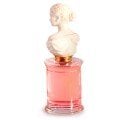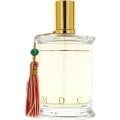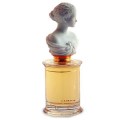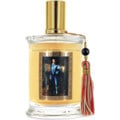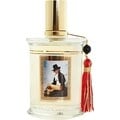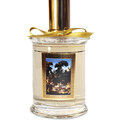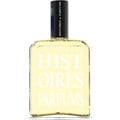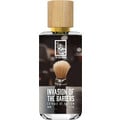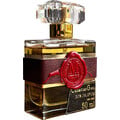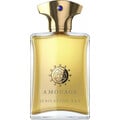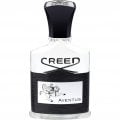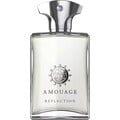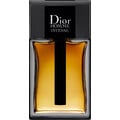03/09/2020

FvSpee
249 Reviews
Translated
Show original

FvSpee
Top Review
34
Lavender Innovations No 2: Tchaikovsky.
In the whole huge perfume database, there are as far as I can see only two perfumes (and completely unknown ones at that) that contain mustard. Invasion Barbare does not contain any either. I chose this introductory sentence because now I'm adding my mustard as well. Which isn't really necessary, because there are already many very good comments on this fragrance (actually, in my opinion, ALL previous reviewers had something good and beautiful to contribute).
Mine is Invasion Barbarian is a two-in-one product. First we have a super innovative unisex retro fragrance that lasts about 30 minutes, then a CUT follows and then comes a men's fragrance that lasts about 8 hours, also funny and innovative, but a bit conventional, with a strong lavender component. The two fragrances actually don't have much to do with each other. I call them "invasion" (30 minutes) and "barbarian" (8 hours).
Invasion is really charming. An OH, AH, TOLL scent. I first tested it in parallel with Oud from Piguet, one on the right arm, one on the left. I had expected something beautiful with Oud and something bizarrely ugly with Invasion Barbarian, given the name, like the "Splendid Excretions" from the "Orange Free State". Funnily enough, it was the other way round, I was totally carried away by "Invasion". I don't feel the supposedly existing citric, I smell an incredibly soft, gentle, velvety, almost creamy floraliness with green touches, a moderate sweetness married to a massive, but not overwhelming astringency, never tipping over into the bombastic or sweetish. Due to the strong floweriness and presumably slight aldehydic influences, Invasion is absolutely acceptable for men (at least for real men who do not need a macho fragrance as a prosthesis of masculinity), but it is anything but a classic "men's fragrance". The fragrance is sensual (and at the same time melancholic) in a way that cannot be clearly placed in a particular gender corner. It seems to me in a similarly unspectacular way "retro", or in the most successful modern way, taking up ideas of old perfume glory, further and further back, Roaring Twenties, Secession, even to the Empire.
After about 20 minutes the end of Invasion is indicated by an increase in the harsh, austere notes. They then become denser, darker and almost seem animalistic and threatening. Interestingly enough, during this short transition period, I can see lavender for the first time, which is not really associated with particularly horrifying ideas ("Larry the Killer Lavender"). This is when Invasion goes under. With "invasion" connected only by a thin lavender thread "barbarian" begins.
"Barbarian" reminds me strongly of Tchaikovsky's "Overture 1812". The work is supposed to depict the French invasion of Russia in 1812. As a stylistic device for the changeable battles between Napoleon and the Russians, the Marseillaise and the Russian anthem are therefore "faded in" from time to time, and so it swings back and forth with the fortunes of battle. A little bit like that it seems to me here, too. In the first few hours of "Barbare", there is more of a radiant, powerful, strong, sometimes even bright and clear lavender in the foreground (which, however, has a considerable penetrating power and does not blow around ethereally and shapelessly), but sometimes also an oriental spiciness, which combines an almost eucalyptic freshness with a leathery-dark variant of Old-Spiceism. So this is the way it goes back and forth, and what connects the two poles to a unity is here a brace of solidity and power. Even if the fragrance doesn't have a roaring sillage, you don't necessarily want to encounter it alone on the street.
After about 2 hours, "Barbarian" becomes noticeably sweeter and more uniform overall, duality tends to settle down. The lavender powderiness remains noticeable until the end, i.e. for about 8 hours, but in addition there is a specific sweetness that goes into the soap, which is almost pungent when smelling close to the skin. If you sniff with arm's length distance, you will not notice it. Then you are more likely to smell the dry lavender cleanliness already described here. In this phase the scent still seems firm, but no longer heavy. Balsa wood so to speak. At some point everything dims sweet and powdery. "Barbarian" is therefore not totally linear, but already clearly recognizable as a uniform scent development and as a distinct men's scent
I'm at a bit of a loss as to what to make of it. I think invasion is great, it blows my mind and is something very special, but where is the question allowed "is it suitable for everyday life"? I also find barbarians very beautiful, a great classic men's fragrance, perhaps of the calibre of an Antaeus (no fragrance twins!), but this raises the question of whether one should spend such a lot of money on it. In view of the fact that the little nose by my side does not like invasion or barbarians and because of the ugly porcelain head I will refrain from buying it.
Of course, I must also mention the name: "Invasions Barbares" (in plural) simply means "migration of peoples" in French. "L'age des invasions barbares" is the age of the migration of peoples. You can see it there: What is declared a merry company outing with mountain boots and a Tyrolean hat from a Germanic point of view, comes across to our Latin friends rather as an intrusion of robbing, plundering and brute-force hordes. Question of perspective. But my French is not fine enough to judge what it means when the term is used in the singular. Does the average Jean-Pierre still think of "migration of peoples" or does it really mean something more like "barbarian invasion"? I don't know. And I also have no idea how to associate this scent with migration or invasion in general. Maybe the Romans smelled like lavender, but the Germans certainly didn't smell like Old Spice, more like Old Sweat. The curtain closed, and all questions open.
Mine is Invasion Barbarian is a two-in-one product. First we have a super innovative unisex retro fragrance that lasts about 30 minutes, then a CUT follows and then comes a men's fragrance that lasts about 8 hours, also funny and innovative, but a bit conventional, with a strong lavender component. The two fragrances actually don't have much to do with each other. I call them "invasion" (30 minutes) and "barbarian" (8 hours).
Invasion is really charming. An OH, AH, TOLL scent. I first tested it in parallel with Oud from Piguet, one on the right arm, one on the left. I had expected something beautiful with Oud and something bizarrely ugly with Invasion Barbarian, given the name, like the "Splendid Excretions" from the "Orange Free State". Funnily enough, it was the other way round, I was totally carried away by "Invasion". I don't feel the supposedly existing citric, I smell an incredibly soft, gentle, velvety, almost creamy floraliness with green touches, a moderate sweetness married to a massive, but not overwhelming astringency, never tipping over into the bombastic or sweetish. Due to the strong floweriness and presumably slight aldehydic influences, Invasion is absolutely acceptable for men (at least for real men who do not need a macho fragrance as a prosthesis of masculinity), but it is anything but a classic "men's fragrance". The fragrance is sensual (and at the same time melancholic) in a way that cannot be clearly placed in a particular gender corner. It seems to me in a similarly unspectacular way "retro", or in the most successful modern way, taking up ideas of old perfume glory, further and further back, Roaring Twenties, Secession, even to the Empire.
After about 20 minutes the end of Invasion is indicated by an increase in the harsh, austere notes. They then become denser, darker and almost seem animalistic and threatening. Interestingly enough, during this short transition period, I can see lavender for the first time, which is not really associated with particularly horrifying ideas ("Larry the Killer Lavender"). This is when Invasion goes under. With "invasion" connected only by a thin lavender thread "barbarian" begins.
"Barbarian" reminds me strongly of Tchaikovsky's "Overture 1812". The work is supposed to depict the French invasion of Russia in 1812. As a stylistic device for the changeable battles between Napoleon and the Russians, the Marseillaise and the Russian anthem are therefore "faded in" from time to time, and so it swings back and forth with the fortunes of battle. A little bit like that it seems to me here, too. In the first few hours of "Barbare", there is more of a radiant, powerful, strong, sometimes even bright and clear lavender in the foreground (which, however, has a considerable penetrating power and does not blow around ethereally and shapelessly), but sometimes also an oriental spiciness, which combines an almost eucalyptic freshness with a leathery-dark variant of Old-Spiceism. So this is the way it goes back and forth, and what connects the two poles to a unity is here a brace of solidity and power. Even if the fragrance doesn't have a roaring sillage, you don't necessarily want to encounter it alone on the street.
After about 2 hours, "Barbarian" becomes noticeably sweeter and more uniform overall, duality tends to settle down. The lavender powderiness remains noticeable until the end, i.e. for about 8 hours, but in addition there is a specific sweetness that goes into the soap, which is almost pungent when smelling close to the skin. If you sniff with arm's length distance, you will not notice it. Then you are more likely to smell the dry lavender cleanliness already described here. In this phase the scent still seems firm, but no longer heavy. Balsa wood so to speak. At some point everything dims sweet and powdery. "Barbarian" is therefore not totally linear, but already clearly recognizable as a uniform scent development and as a distinct men's scent
I'm at a bit of a loss as to what to make of it. I think invasion is great, it blows my mind and is something very special, but where is the question allowed "is it suitable for everyday life"? I also find barbarians very beautiful, a great classic men's fragrance, perhaps of the calibre of an Antaeus (no fragrance twins!), but this raises the question of whether one should spend such a lot of money on it. In view of the fact that the little nose by my side does not like invasion or barbarians and because of the ugly porcelain head I will refrain from buying it.
Of course, I must also mention the name: "Invasions Barbares" (in plural) simply means "migration of peoples" in French. "L'age des invasions barbares" is the age of the migration of peoples. You can see it there: What is declared a merry company outing with mountain boots and a Tyrolean hat from a Germanic point of view, comes across to our Latin friends rather as an intrusion of robbing, plundering and brute-force hordes. Question of perspective. But my French is not fine enough to judge what it means when the term is used in the singular. Does the average Jean-Pierre still think of "migration of peoples" or does it really mean something more like "barbarian invasion"? I don't know. And I also have no idea how to associate this scent with migration or invasion in general. Maybe the Romans smelled like lavender, but the Germans certainly didn't smell like Old Spice, more like Old Sweat. The curtain closed, and all questions open.
22 Comments

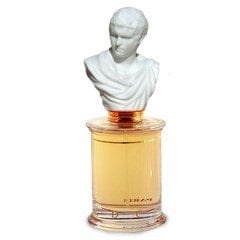


 Top Notes
Top Notes 


 Heart Notes
Heart Notes 



 Base Notes
Base Notes 










 MrFumejunkie
MrFumejunkie Toreter
Toreter Hermesh
Hermesh Tombbb
Tombbb Aarseth
Aarseth